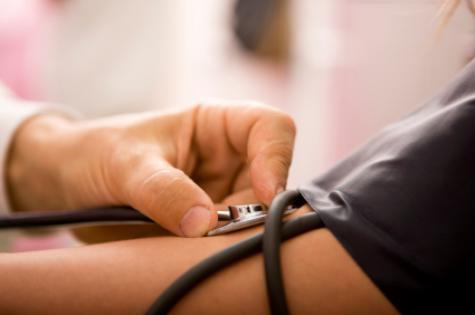There's a reason why the World Health Organisation (WHO) focussed on high blood pressure (or hypertension) on World Health Day yesterday: it kills more than 9 million people annually, and one in three adults worldwide has it.
It is one of the key risk factors for cardiovascular disease which is by far the leading cause of death in Australia.
But even though high blood pressure can be unnoticed and undiagnosed in the early stages, it can also be prevented and treated.
Your blood pressure should be checked as a matter of routine every time you see the doctor. If you, or other adults in your family, haven’t had it checked in the last six months, make an appointment to see a GP to get it done.
For some people, medication is required. But before moving you on to medication, your doctor will probably carry out some tests to check whether your high blood pressure has an underlying cause. This might include an electrocardiogram (ECG), a full blood count, kidney function tests, electrolytes (sodium, potassium and other blood salts) and an analysis of your urine.
If there appears to be no underlying medical condition causing your blood pressure, you have what is known as ‘essential hypertension’ which accounts for around 90% of all cases of high blood pressure. It can’t be cured – but it can be treated and managed effectively.
For many people, maintaining the right lifestyle – or making lifestyle changes – is sufficient to control blood pressure. This is what medical practitioners say you can do to help yourself and your family.
1. Manage your weight
If you’re overweight, take steps to lose it. Even a small weight loss will help. Increase your intake of fruits and vegetables, and choose foods that are low in saturated fat and high in fibre, vitamins and minerals. Your doctor or dietitian will be able to help if you don’t know where to start.
2. Reduce salt intake
Many canned, packaged and processed foods contain excessive amounts of salt (sodium chloride) so you should read the labels carefully and choose ‘low salt’ or ‘salt free’ wherever possible. Remove salt from your recipes wherever you can and limit smoked, cured or processed meat and meat products.
3. Cut down on alcohol
Limiting your drinking to a moderate amount of alcohol will help to keep your blood pressure normal. The recommendation is that men with high blood pressure should limit their intake to 2 units of alcohol or less per day, and women should limit their intake to 1 unit or less per day. A unit of alcohol is roughly equivalent to a standard glass of normal strength beer, a small glass of wine, or a single measure of spirit such as whisky or gin. Both men and women should have at least two alcohol-free days each week.
4. Get physical
Taking part in a regular exercise program will make you feel better and reduce your risk of developing serious or chronic illnesses. Aerobic activities that condition your heart and lungs, such as swimming, walking or cycling are best. Start slowly and build up to doing at least 30 minutes of moderate exercise most days. If you don’t have time to do 30 minutes, do what you can: you can do 3 sessions of 10 minutes if this is more convenient. If you are taking medication, have a history of serious illness or have not exercised for a while, check with your doctor before starting a program. Weight lifting isn't recommended if you have a blood pressure problem as it can cause increases in blood pressure.
5. Give up smoking
This one’s simple. Give up smoking. Your doctor will be able to suggest the best quitting strategy.
* * *
Motherpedia has a significant number of relevant articles with further information to assist in managing high blood pressure, some of which are referenced below. Check out our Health, Fitness & Weightloss and Recipes sections.



















__small.png)










